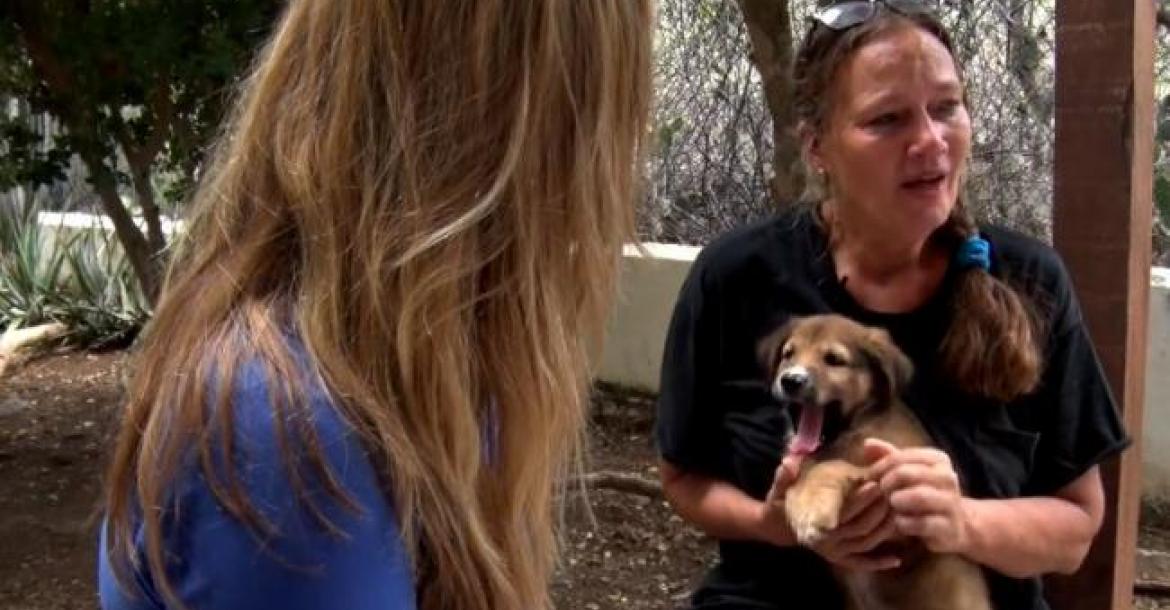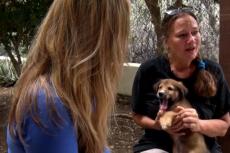Lost in paradise, the Dogs of Curaçao: the true story behind the film
Following the film "Lost in Paradise, the dogs of Curaçao", it was high time to arrange a personal interview with someone who participated in this on location.
The documentary, made by House of Animals and Animals Today gives a realistic picture of what is happening on the island of Curaçao. Mirjan Seppenwoolde is one of the many volunteers who are committed to animal welfare in Curaçao. I asked her what she eventually thought of the documentary and whether it is realistic what was shown, there is always a lot cut in broadcasts and not everything is equally truthful.
There was only 5 days filmed. But you come across the suffering everywhere on the island, the nasty situations in which dogs, as well as cats, find themselves. So 5 days seems to be short, but in this time so much film material was shot that the documentary could have been 3 times longer.
Is it really that bad? Yes, it is distressing, both filmmakers and viewers have reacted to the situation with a start. The documentary really shows a good realistic picture. There has been some criticism, especially on the fact that a lady climbs over a wall. That is not so neat indeed. But if one finds another mother dog tied up in the garden half in salt water and 22 pups there. And if you come back the next day and there are only 11 pups. Then something is wrong. You do not put these kinds of things in the scene, that is just hard poignant reality. 3 of these rescued dogs were also present at the premiere of the film in the Netherlands.
On Curaçao, the documentary has already been viewed a lot. It has already given many more insight into the situation. People often did not know that it was that bad. And there are still many people who have no idea that a dog and cat also have emotions and feelings. With this film there is more awareness and that is beautiful. The reactions are really very positive.
Then there is a lot of criticism from the population on the rescue organizations. There are also quite a number of organizations on the island, but apparently that is necessary, because they are all full of animals that have been caught up to the ridge. The criticism is that the Makambas want to change our country. (Makamba is an abuse for import white) The strange thing is that this criticism is mainly expressed by people who are not on the island but live elsewhere. If people on the island are approached by the rescue organizations, they would like to be helped. Here on the spot we experience that differently than in the reviews.
Incidentally, it is unfortunately the case that the foundations are mostly run by white women. A few are Yu di Korsow (original inhabitant of Curaçao). The foundations would very much like more residents who also obviously better understand the language (Papiamentu) to help with this. That would be great. So if there are men and / or women YdK, then they are more than welcome to make a contribution. The foundations are certainly not out to lift a finger, so you have to do it, nobody cares. They are mainly to help and make people aware that it is important to respect animals as well. And so it is in the documentary. Do not lift or point fingers, but face reality alone.
It is therefore important that this film is seen by as many people as possible, that it asks for an opinion about it and that discussions and discussions are initiated in response to this.
What is still on the island is enforcement. There are laws, but there is simply no enforcement. There is a new law ready, but just enforcement on the old law would already help. The old law says that a dog may lie on a chain, but must wear a proper regular collar and must have shelter from rain and sun and that a tree is not sufficient for that. Naturally, a new law is nice, but enforcement on the old law would already make a difference.
Lees ook: Eén Europa lichtjaren ver weg voor hondenfok en -handel
What is enforcement, if there is a bite incident. Then the dog is immediately seized by the police and then put into custody by the Public Prosecution Service at the Veterinary Service. Unfortunately, the care leaves a lot to be desired and most dogs are there years before any judgment comes and usually die before from the Karpatten disease (illness caused by ticks) Just like in the Netherlands the dog always mentally such a solitary confinement, but there is something less fun about it.
In any case, it is important that there is awareness and there are already several projects and more projects are started so that people see and experience the right way to deal with animals. There is also a big problem with the dumped dogs, through various sterilization projects there is already as much as possible action taken, but occasionally mopping seems to be open with the tap. People sometimes do not know or do not want their animal to be sterilized, so that there are always litters with pups dumped in the Kunuku (outdoor area).
Please look at the documentary and do not close your eyes to the problem that is taking place in a part of the Kingdom of the Netherlands. And then we remain silent about the situations on the other islands, such as Aruba and Bonaire.
Come on holiday to the beautiful island of Curaçao and take a day out to help with an organization. There is plenty to do every day. Even if it is only to hug puppies for socialization, so that they can be better adopted.
Do not forget that the foundations are all dependent on donations. They can not do anything without these donations. This money is used for the costs of the veterinarians (who already carry out work for the foundations at a reduced rate), vaccinations, medication, feed (especially a lot of feed) and water. Yes, water also costs a lot of money here, just like electricity.
The rescue organizations have also set up a platform and that is of course great. Everyone can donate themselves to the foundation that fits best and mutual help is also offered by lending catch cages, nets, trips to the vet, joint catch actions and the like. More foundations are therefore not necessary, but more help is provided to and in the existing foundations, so that more joint efforts can be made and better programs and actions can be put in place. In addition to various foundations, there are also many single-pitters at the platform, who provide assistance and care to the animals independently. They are not part of a foundation, but do so entirely on their own initiative.
While this interview took place in the meantime several phone calls were made between the rescue people and in the meantime a dog was brought in need, who needs extra care until the weather can stand on its own feet.
With thanks to Mirjan Seppenwoolde of Stichting Rescue Paws
It is part of the "Animal Welfare Platform Curaçao", which also includes: Dog Foundation, Feed Friends, Carf and the Animal Protection.





